Friday, April 21, 2023
The United States and NATO have expressed confidence that Ukraine could regain ground in a much-anticipated counter-offensive, as they vowed unwavering support for Kiev at a key meeting in Germany.
At the talks hosted by the US, representatives from around 50 nations went “through all the different capabilities, systems, supplies that the Ukrainians need”, NATO chief Jens Stoltenberg said.
“I’m confident that they will now be in a position to be able to liberate even more land,” the NATO chief added.
US Defence Secretary Lloyd Austin, who hosted the Ramstein talks, also assessed that efforts by allies to bolster Kiev “will put Ukraine’s forces in a position to continue to succeed on the battlefield”.
German Defence Minister Boris Pistorius told reporters after the meeting that Germany, Poland and Ukraine have signed a memorandum of understanding to set up a maintenance hub in Poland to repair Leopard tanks used in Ukraine.
Moscow reacted with anger to the latest gathering in Ramstein, with the Russian foreign ministry saying the allies’ action for Ukraine “confirms their direct involvement in the conflict and participation in the planning of military operations”.
Follow more updates 👇
1826 GMT — Minister: Ukraine will beat Russia in war of technologies
As Ukrainian and Russian troops fight conventional battles on the front lines, Europe’s first major war of the internet age has also sparked a war of technology as both sides vie for the advantage with their drones and satellite communications.
While the two sides have kept pace with one another thus far, Ukraine’s Minister of Digital Transformation Mykhailo Fedorov told The Associated Press in an interview Friday that he was confident his country had the motivation and abilities to out-innovate Russia in the end.
He said the government was planning investments in new technology projects to encourage further competition and innovation. “In this technology war we will surely win,” he said. “Even if fewer than 50-60 percent of supported projects will give some result, it can be decisive on the battlefield.”
1648 GMT — Washington, allies will step up supplying air defence systems to Ukraine
Washington and its allies will step up supplying air defence systems to Ukraine, US Defense Secretary Lloyd Austin has said following the Ukraine Contact Group meeting at Ramstein Air Base.
“What Ukraine needs most urgently is ground-based air defence capability,” Austin told a news conference, adding that they will do everything to provide these systems.
“I have to applaud the work that our partners are doing. I believe that we can still do more, and I’m asking them to do more, and I believe that they will respond,” he said.
Modern fighter jets were still on Kiev’s “wish list”, Ukrainian Defence Minister Oleksiy Reznikov insisted after the talks, saying: “I am sure that we will have modern, NATO-standard… fighter jets as a part of air defence systems.”
Allies have so far stopped short of sending Western-made fighter jets to Ukraine, focussing on protecting Ukraine from incoming Russian rocket attacks with anti-air missiles.
1638 GMT — US to begin training Ukrainian troops on Abrams tanks
The United States will begin training Ukrainian forces on how to use and maintain Abrams tanks in the coming weeks, as it continues to speed up its effort to get them onto the battlefield as quickly as possible, according to US officials who spoke on the condition of anonymity.
31 tanks will reportedly arrive at Grafenwoehr Training Area in Germany at the end of May, and the troops will begin training a couple of weeks later, for about 10 weeks.
The training tanks will not be the ones given to Ukraine for use in the war against Russia. Instead, 31 M1A1 battle tanks are being refurbished in the United States, and those will go to the frontlines when they are ready.
1310 GMT — Ukraine joins EU disaster solidarity framework
Ukraine has officially joined the EU Civil Protection Mechanism, becoming its 36th member, the European Commission has announced.
With Ukraine’s membership, 27 EU member states and nine partner countries participate in the mechanism that provides immediate assistance in case of natural disasters and emergency situations.
Under the framework, Ukraine has already received over 88,000 tons of life-saving equipment, food, and medicines since the beginning of Russia’s “special military operation” last year in February.
“As a full member, Ukraine will now also be able to provide the same solidarity to other countries and people affected by crises,” Lenarcic said.
1233 GMT — Kiev: Situation in city of Bakhmut ‘under control’
Ukraine has said that Russian forces had made some advances in fierce fighting for the eastern city of Bakhmut, but that the situation was under control.
Deputy Defence Minister Hanna Malyar made her comments shortly before Russia’s defence ministry said its assault troops were now fighting in western parts of Bakhmut, the last part of the city held by Ukrainian forces.
“The situation is tense, but under control,” Malyar wrote on the Telegram messaging app. “Decisions are being made according to military expediency.”
1208 GMT — Russia’s air force accidentally bombs own city
A Su-34 bomber of the Russian air force has accidentally released a bomb on the Russian city of Belgorod near the border with Ukraine, causing a powerful blast and injuring two people, according to the defence ministry.
The ministry did not provide any further details, but military experts said the weapon likely was a powerful 500-kilogram (1,100-pound) bomb.
The bomb left a 20-meter (66-foot) -wide crater in the middle of a tree-lined boulevard flanked by apartments, damaged several cars and threw one vehicle onto a store roof.
1159 GMT — Kremlin: NATO encroaching on Russia’s security
Kremlin spokesman Dmitry Peskov has criticised NATO, saying Russia is “dealing with an aggressive bloc that views our country as an opponent and encroaches on the security of our country,” in a press briefing in Moscow.
Commenting on Secretary General Jens Stoltenberg’s remarks that Ukraine should eventually join the alliance, Peskov said: “NATO continues its policy of absorbing and drawing Ukraine into the alliance. Our president spoke about this and this potential threat long before the start of his campaign.”
“And all this once again demonstrates the correctness of the president’s decision to launch this operation, based on the interests of the Russian Federation and the need to ensure its security,” he stressed.
Peskov added that Russia wasn’t planning a new mobilisation drive for its military operation in Ukraine, amid media reports that students were being served draft notices.
1118 GMT — Ukraine allies vow strong backing at key talks
International backing for Ukraine holds “strong and true”, US Defence Secretary Lloyd Austin has said at a meeting in Germany with representatives from 50 ally nations to discuss further support for Kiev.
“At today’s contact group meeting, we’ll focus on three key issues — air defence, ammunition and enablers,” said Austin, referring to logistics and other support.
In Ramstein, NATO chief Jens Stoltenberg acknowledged the need to discuss “new platforms” of support with the battle now in its second year, while he also underlined the need to ensure that already supplied weapons continued to work.
“This is now a battle of attrition, and a battle of attrition becomes a war of logistics,” Stoltenberg said, adding, “maybe it’s also a bit more boring but the logistics is extremely important”.
1047 GMT — Britain sanctions Russian figures linked to jailing of Putin critic Kara-Murza
Britain has imposed sanctions against a Russian judge and four others linked to the arrest and alleged poisonings of Kremlin critic Vladimir Kara-Murza who was jailed for 25 years this week for treason and other offences.
Kara-Murza, a 41-year-old opposition politician who holds both Russian and British passports, spoke out against President Vladimir Putin for years and had successfully lobbied Western governments to impose sanctions on Moscow and individual Russians for purported human rights violations.
Kara-Murza has said his sentencing – the harshest of its kind since Russia invaded Ukraine last February – was politically motivated.
“Russia’s treatment and conviction of Vladimir Kara-Murza once again demonstrates its utter contempt for basic human rights,” British foreign minister James Cleverly said.
“The UK will continue to support Mr Kara-Murza and his family. I call on Russia to release him immediately and unconditionally.”
1039 GMT — Brazil’s Lula visits Portugal amid tensions with EU over Ukraine
Brazilian President Luiz Inácio Lula da Silva was set to arrive in Portugal on Friday amid heightened tensions with the European Union over his position on the war in Ukraine, following statements suggesting the invaded country and the West share responsibility for the conflict.
Lula said last weekend while traveling in the United Arab Emirates and China that both Ukraine and Russia had decided to go to war, and that the US was “stimulating” the fighting.
Earlier in the month, he also irked Ukraine, the US and the EU by suggesting that Ukraine cede Crimea, which Russia seized in 2014, to end the current conflict.
Lula also welcomed Russian Foreign Minister Sergey Lavrov to Brasilia on Monday. The following day, Lula condemned the “violation of Ukraine’s territorial integrity” while promoting his proposal for a club of nations, including Brazil, to mediate a peaceful resolution to the war.
Lula’s trip to Portugal is an opportunity to repair some of the damage to Brazil-EU relations his comments caused, said Guilherme Casarões, a political scientist at the Getulio Vargas Foundation, a think tank and university in Sao Paulo.
“It could be an important step for Lula to show that he is really willing to adopt a position of balance or equidistance between the parties involved in the conflict, potentially allowing Brazil to play the role of mediator in the medium term,” Casarões said.
0940 GMT — Ukraine presses for weapons as US and allies meet in Germany
Ukraine pressed allies for long-range weapons, jets and ammunition as the United States hosted a meeting at the Ramstein air base in Germany on Friday to discuss stepped up support to repel the Russian invasion.
US Defence Secretary Lloyd Austin said the meeting would focus on air defence and ammunition as he opened the latest in a series of arms-pledging conferences ahead of an expected Ukrainian counteroffensive in the coming weeks or months.
NATO member states and their allies have provided Ukraine with weapons and armour since Russia’s unleashed its invasion in February last year, but Ukraine’s leadership has repeatedly asked for more powerful weapons and quicker supplies.
0319 GMT — Australia prime minister to attend NATO summit in July
Australian Prime Minister Anthony Albanese will attend the NATO summit in July in the Lithuanian capital Vilnius, his office said on Friday, days after his New Zealand counterpart, Chris Hipkins, confirmed his attendance.
Australia and New Zealand are not members of the North Atlantic Treaty Organization (NATO) but have a decades-long relationship with the Western alliance.
Albanese’s office said in a statement that Australia shared with NATO members “a commitment to supporting democracy, peace, and security and upholding the rule of law” as the group looks to expand and strengthen ties.
“The Prime Minister’s attendance … will be an important opportunity to reinforce Australia’s support for these global norms, demonstrate solidarity in response to Russia’s illegal and immoral invasion of Ukraine, and advocate for Australia’s economic, climate and trade agenda,” the statement said.
0051 GMT — Ukraine’s ‘rightful place’ is in the alliance – NATO chief
NATO chief Stoltenberg has defiantly declared that Ukraine’s “rightful place” is in the military alliance and pledged more support for the country on his first visit to Kiev since Russia’s invasion just over a year ago.
Ukrainian President Zelenskyy urged Stoltenberg, who has been instrumental in marshaling support from NATO members, to push for even more from them, including warplanes, artillery and armoured equipment.
The Kremlin has given various justifications for going to war, but repeated that preventing Ukraine from joining NATO is still a key goal of its invasion, arguing that Kiev’s membership in the alliance would pose an existential threat to Russia.
NATO leaders said in 2008 that Ukraine would join the alliance one day, and Stoltenberg has repeated that promise throughout the war, though the organisation has established no pathway or timetable for membership.
2302 GMT — Now is not the time to discuss Ukraine’s NATO membership: Germany
German Defence Minister Boris Pistorius has rejected a quick decision on Ukraine’s membership in NATO, the Western alliance that has supported Ukraine throughout its war with Russia, with member states supplying it with weapons.
“The door is open a crack, but this is not the time to decide now,” Pistorius said late on ZDF’s Maybrit Illner programme, adding that Ukraine was aware of the decision-making situation.
Pistorius said the decision of Ukraine to join the alliance could not be made just out of solidarity but “with a cool head and a hot heart. Not the other way around.”
2052 GMT — Zelenskyy calls leaders who stay neutral populist
Ukrainian President Zelenskyy took a swipe at leaders who have adopted postures of neutrality regarding the Russian invasion of Ukraine, calling them populists.
Zelenskyy’s comments, in a video link before a committee of Mexican legislators, were an apparent reference to leaders such as Brazilian President Luiz Inacio Lula da Silva.
The Brazilian leader has refused to provide weapons to Ukraine, has appeared to ascribe blame to both sides and has proposed a club of nations including Brazil and China to mediate peace.
Mexico, under President Andres Manuel Lopez Obrador, has voted to condemn the invasion, although it has declined to impose economic sanctions on Russia.
For our live updates from Thursday (April 20), click here.

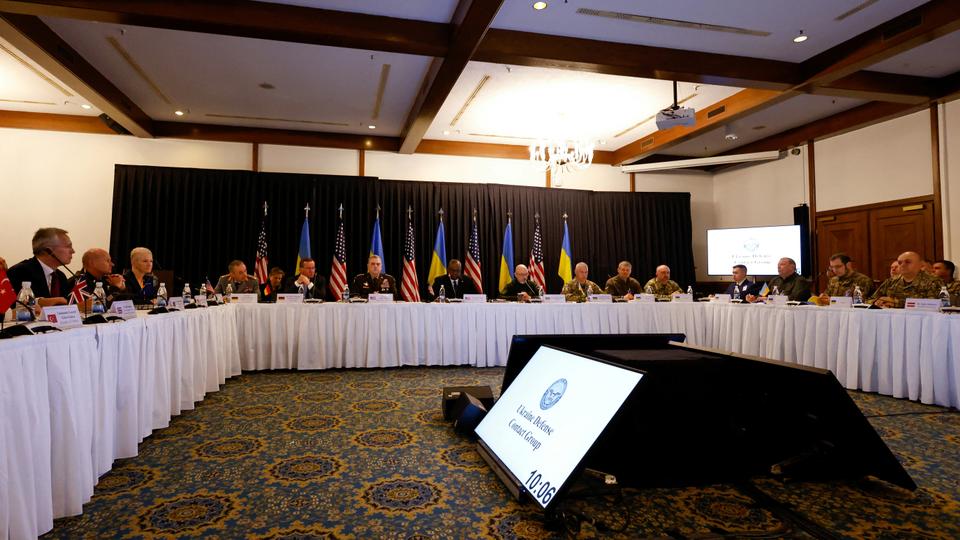
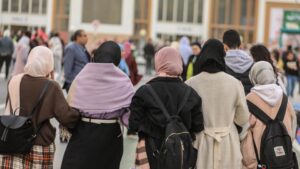
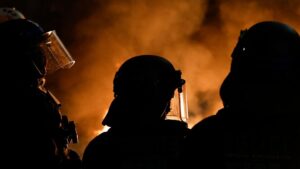
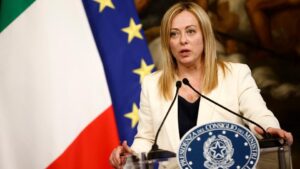
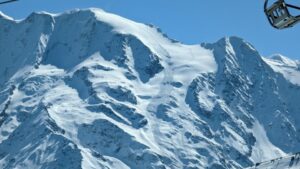
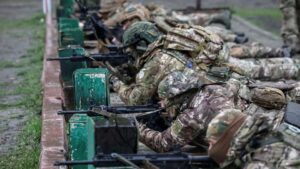

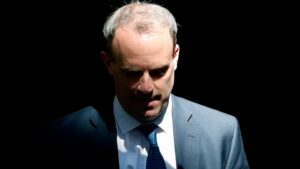
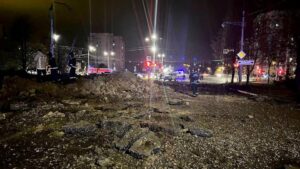
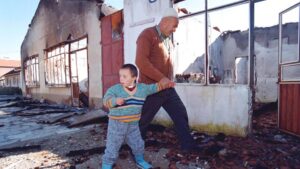

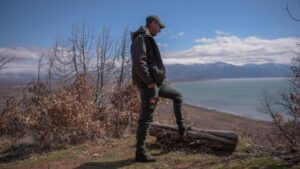
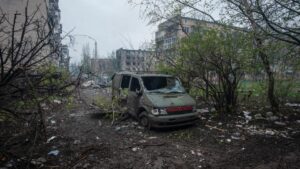
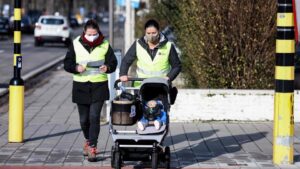
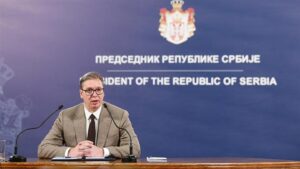

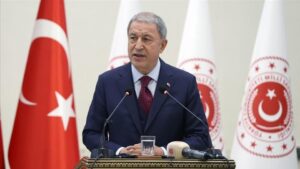
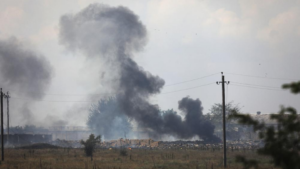
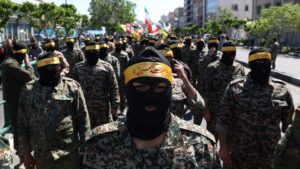

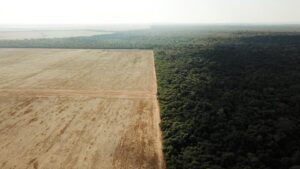
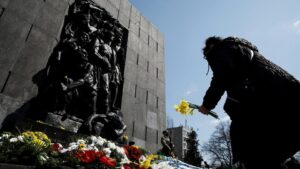
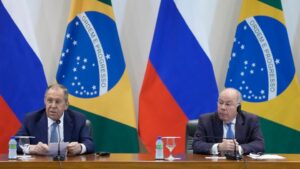

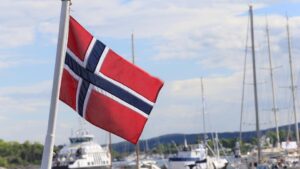
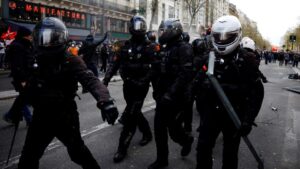
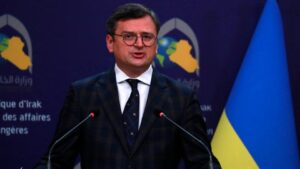
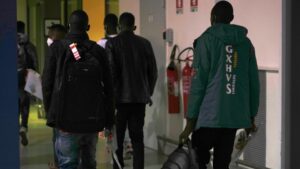
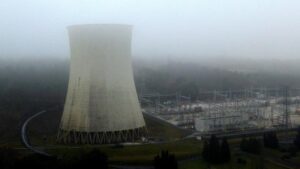
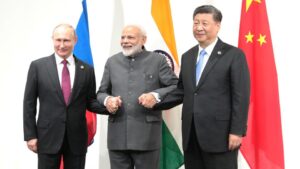
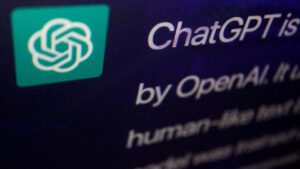
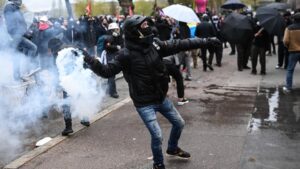
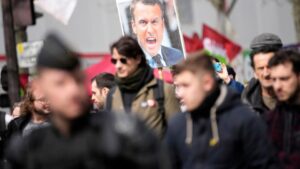
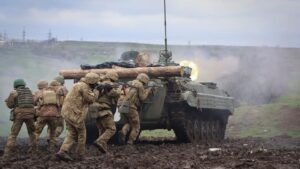

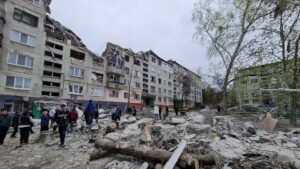
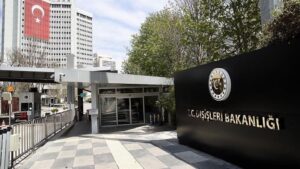


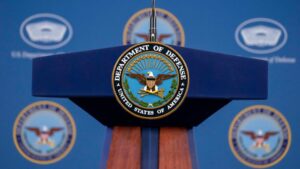
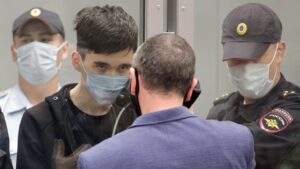
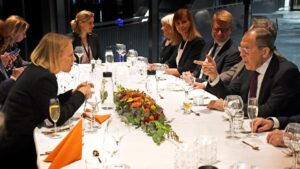
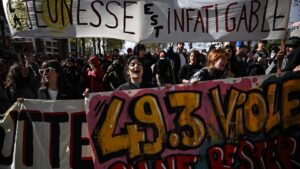
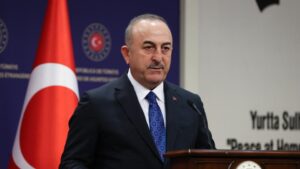
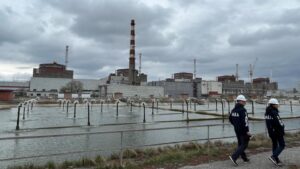
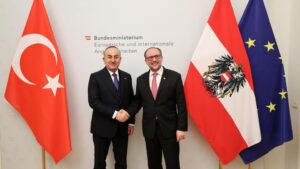
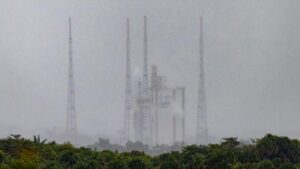
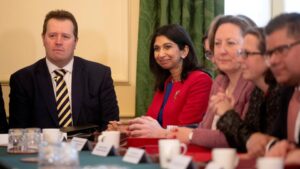
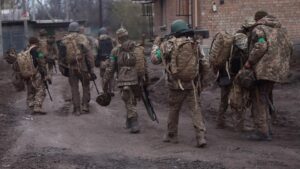
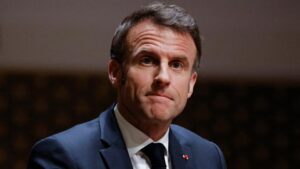
Be First to Comment